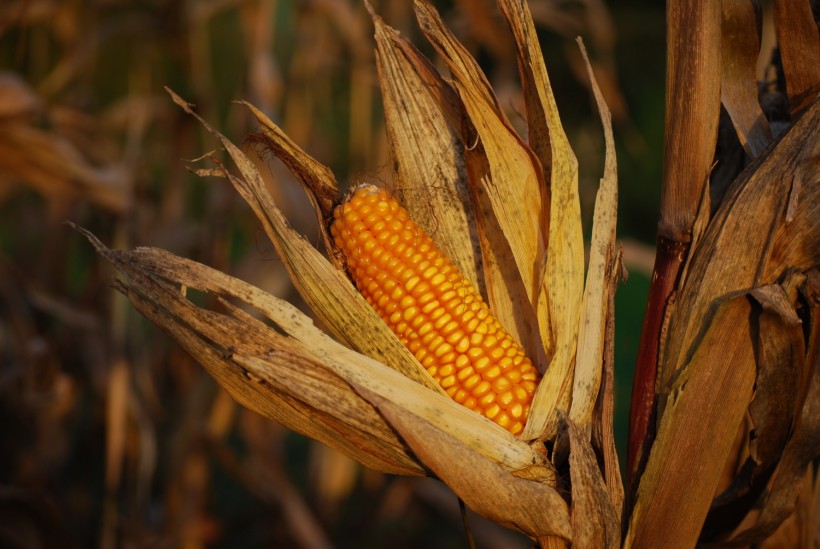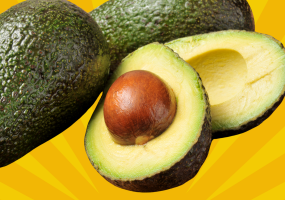We are well aware that not every ingredient listed on the food product we eat is natural. But do you know that these ingredients can also come from organisms that have been genetically modified?
Genetically modified organisms, also known as GMO, are organisms that have had their genetic composition altered in a laboratory by the use of genetic engineering or transgenic technology. It creates combinations of genes from plants, animals, bacteria, and viruses that do not exist in nature or through conventional crossbreeding.
Considering all this, would you believe these organisms have been widely used in the United States for years? Here are some unbelievably real genetically modified crops you might not expect to find in your food.

1. Soybean
GMO soy makes up most of the soy farmed in the United States. As well as being used to produce soybean oil, most genetically modified soy is consumed by animals, such as poultry and livestock. It is reportedly utilized in producing processed meals as components like lecithin, emulsifiers, and proteins.
2. Corn
One of the most widely cultivated crops in the United States is corn, most of which is genetically modified. GMO corn is typically engineered to resist insect pests or withstand herbicides. Corn genetically modified to generate poisonous proteins for specific insect pests but not for humans, pets, livestock, or other animals is known as Bacillus thuringiensis (Bt) corn. As mentioned, beneficial insects, including ladybugs, are not harmed by these proteins, which organic producers concurrently employ to control insect pests. While reducing the need to apply insecticides, GMO corn lessens the damage caused by insects.
3. Potato
Some genetically modified potatoes were developed to protect against disease and insect pests. As stated, many genetically modified potato varieties have been designed to resist bruising and browning, which can occur when potatoes are packaged, stored, transported, or chopped during cooking. The process of browning does not alter the quality of the potato; however, it frequently results in the unwarranted disposal of food because people incorrectly feel that browned food has gone bad.
4. Papaya
By the 1990s, the illness caused by the ringspot virus had almost completely eradicated Hawaii's papaya crop. As a result, the papaya industry in Hawaii was on the verge of being completely wiped out. The Rainbow papaya, a genetically modified variety of papaya, was created to confer resistance to the ringspot virus. This GMO saved the cultivation of papaya on the Hawaiian Islands.
5. Canola oil
GMO canola is mostly utilized in the production of cooking oil and margarine. It is also possible to use canola seed meal as a component of animal feed. Accordingly, Canola oil is utilized in various packaged goods to enhance the product's consistency, and herbicide resistance makes it easier for farmers to control weeds in their fields when they utilize GMO canola.
Read Also: Sweet Truth Act: NYC Forces Restaurants to Warn Customers About Excessive Sugar in Menu
Is it Safe to Consume GMOs?
According to a report from the Economic Research Service (ERS) of the United States Department of Agriculture, in 2020, approximately 55% of the total harvested cropland in the United States was produced with a variety that possessed at least one genetically modified characteristic feature. Genetically modified crops were widely adopted by farmers in the United States in the 1990s and are mostly used for growing corn, soybeans, and cotton. It also includes canola, potatoes, sugar beets, papaya, squash, and apples. Thus, tolerance to herbicides and insect resistance are the most prevalent genetically modified features.
On the other hand, extensive research has determined that genetically modified foods are safe to consume. Based on the research conducted by the National Academies of Sciences, Engineering, and Medicine, there is no evidence to suggest that genetically altered plant crops that are accessible for commercial use pose any greater threat to human health than crops that are developed using conventional methods.
Related Article: KFC China Food Scandal: Fried Chicken Chain SUES Defamers Saying KFC GMOs Have 6 Wings, 8 Legs
To keep up with the latest news on trending recipes, food safety, and more, follow Food World News!









